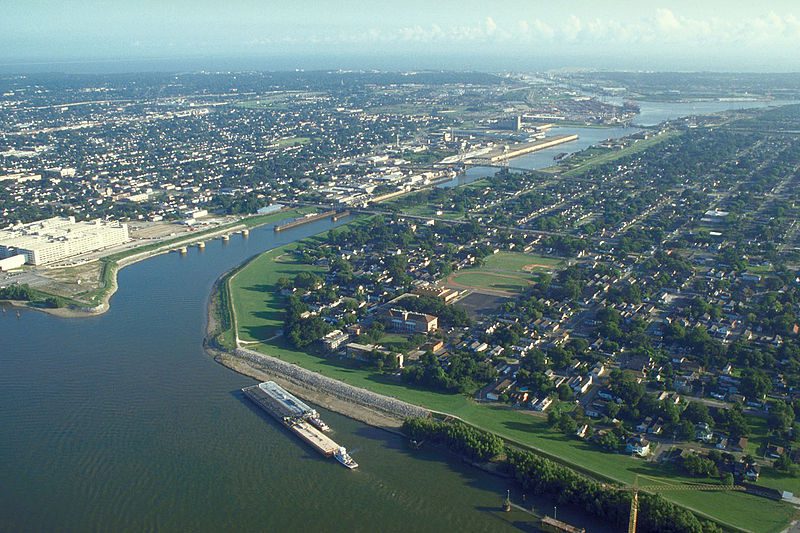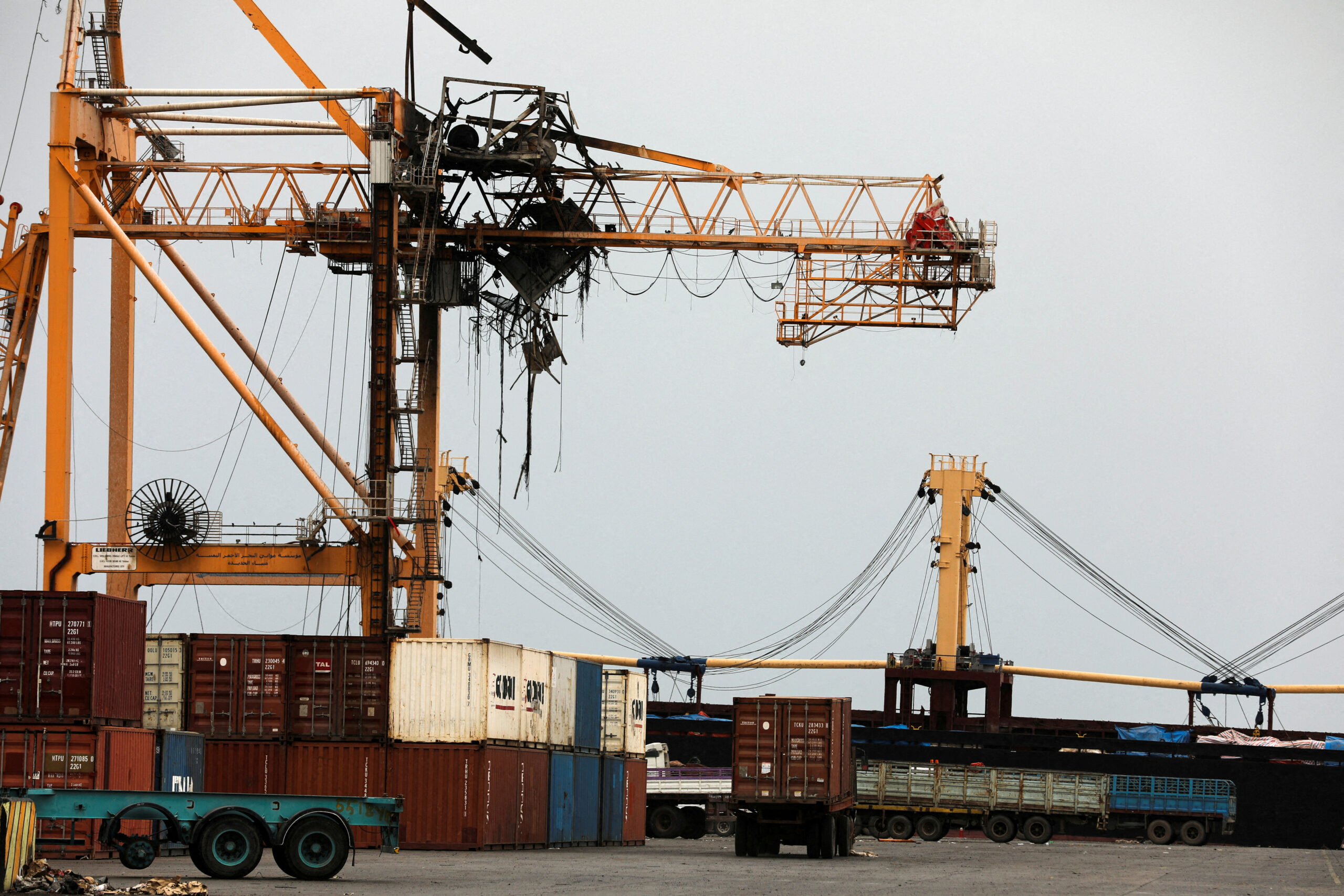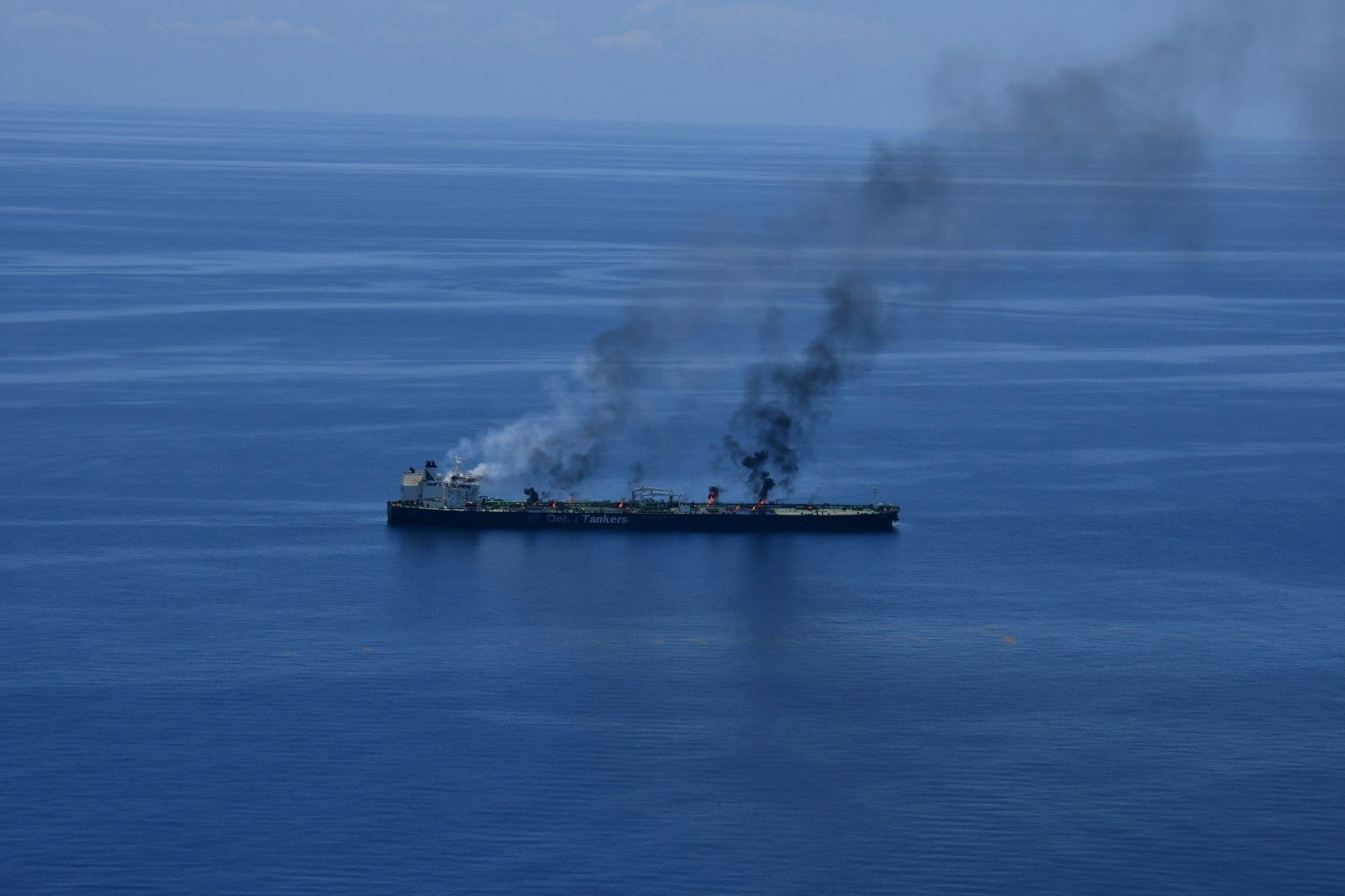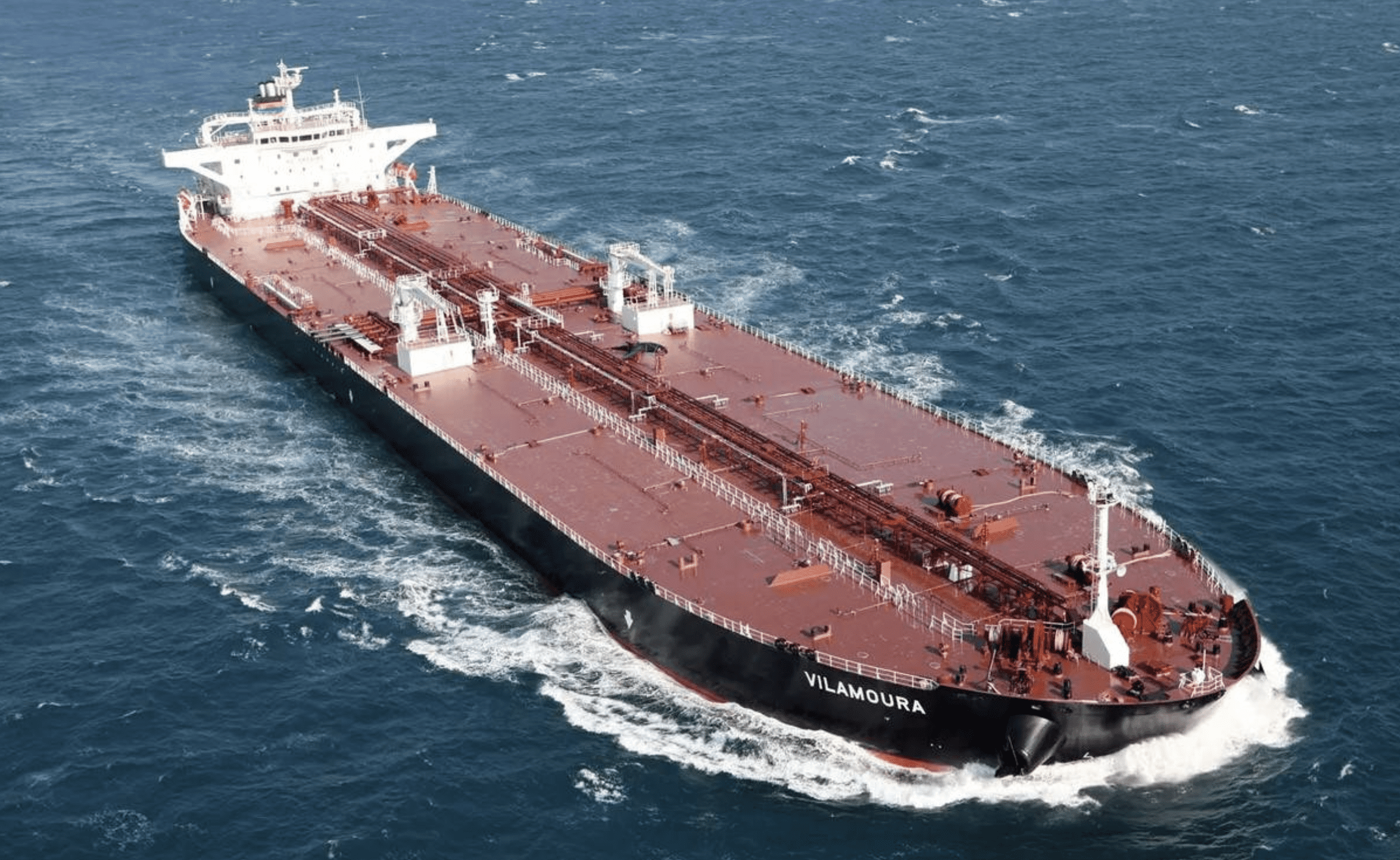The Inner Harbor Navigation Canal (IHNC), commonly known as the Industrial Canal, in New Orleans, Louisiana, where it meets the Mississippi River. File photo.
By Harry R. Weber and Edward Welsch
Jan. 9 (Bloomberg) — Barges are backed up on the Mississippi River near a New Orleans canal, delaying some shipments of gasoline and diesel to nearby states, after a 90- year-old lock gate that controls traffic in the area broke.
The best estimate is that repairs to the lock, which broke over the weekend, will be finished by Jan. 17, though they could take 14 days, said Ricky Boyett, a spokesman for the U.S. Army Corps of Engineers’ New Orleans District, which is conducting the work.
The 5.5-mile (8.8 kilometer) Industrial Canal, formally known as the Inner Harbor Navigation Canal, opened in 1923 and connects Lake Pontchartrain in New Orleans with the Mississippi River. The canal allows vessels to move from the river to the Gulf Intracoastal Waterway, a 1,300-mile man-made canal that runs along the Gulf of Mexico coastline from Texas’ border with Mexico to St. Marks, Florida, near Tallahassee.
“There will probably be a bit of an impact on Florida gasoline stocks and prices,” James Williams, president of energy consulting firm WTRG Economics, said by telephone from London, Arkansas. “It’s too soon to tell exactly how much of an impact that will be, but a week’s interruption, just a week, is going to put pressure on the system.”
Barges traverse the Intracoastal Waterway to deliver gasoline, diesel and other fuels from Louisiana and Texas refineries to Florida markets. In 2012, 5.69 million tons of petroleum and petroleum products moved through the lock, according to the corps’ website.
Waiting Vessels
There were 69 vessels waiting for passage through the lock as of 6:47 a.m. local time, the corps’ website showed today. There were 43 waiting to enter the canal from the river and 26 waiting to go in the other direction.
“I would expect some of the fuel to be shipped by barge down the Mississippi and around,” Williams said yesterday. “Some of it may even be trucked.”
Vessels can travel east to the Intracoastal Waterway by going down the Mississippi River and exiting near the Baptiste Collette Bayou near the mouth of the river, or by moving upriver and traveling back south through Tennessee, Mississippi and Alabama to Mobile, according to Jim Stark, executive director for the Gulf Intracoastal Canal Association in New Orleans.
“There really is no easy way to get east,” Stark said in a phone interview today. “Going through Baptiste Collette exposes them to outer coastal conditions where they shouldn’t be and the trip up and down river takes an additional 14 to 20 days.”
Industry Costs
The Canal Association estimates that it costs the barge industry $1 million per day for each day the lock is closed, Stark said.
The lock being repaired, commonly referred to as the Industrial Canal Lock, is shorter and narrower than more modern locks on the Mississippi River system. The lock was closed in 2008 for 60 days for repairs. According to the Corps website, a project that has been discussed for decades to replace the lock is stalled.
The main gear used to open one of the lock gates broke early Jan. 4, Boyett said.
“One of the challenges we have with this lock is that it’s 90 years old,” Boyett said. “Some of the parts that we need don’t exist any more, so they have to be fabricated.”
Buckeye, Exxon
The disruption is mainly affecting barges traveling through the Intracoastal Waterway, said U.S. Coast Guard Vessel Traffic Service official George Petras yesterday. “This is not a maritime transportation issue with regard to large vessels coming from sea and making it into port.”
Buckeye Partners LP, Exxon Mobil Corp., Kinder Morgan Energy Partners LP and NuStar Energy LP didn’t expect the closing to affect fuel supplies or deliveries to their terminals, spokesmen for the companies said yesterday.
There’s no impact to Louisiana or Florida operations, said Greg Matula, a spokesman for NuStar.
Copyright 2014 Bloomberg.
Tags:

 Join The Club
Join The Club











